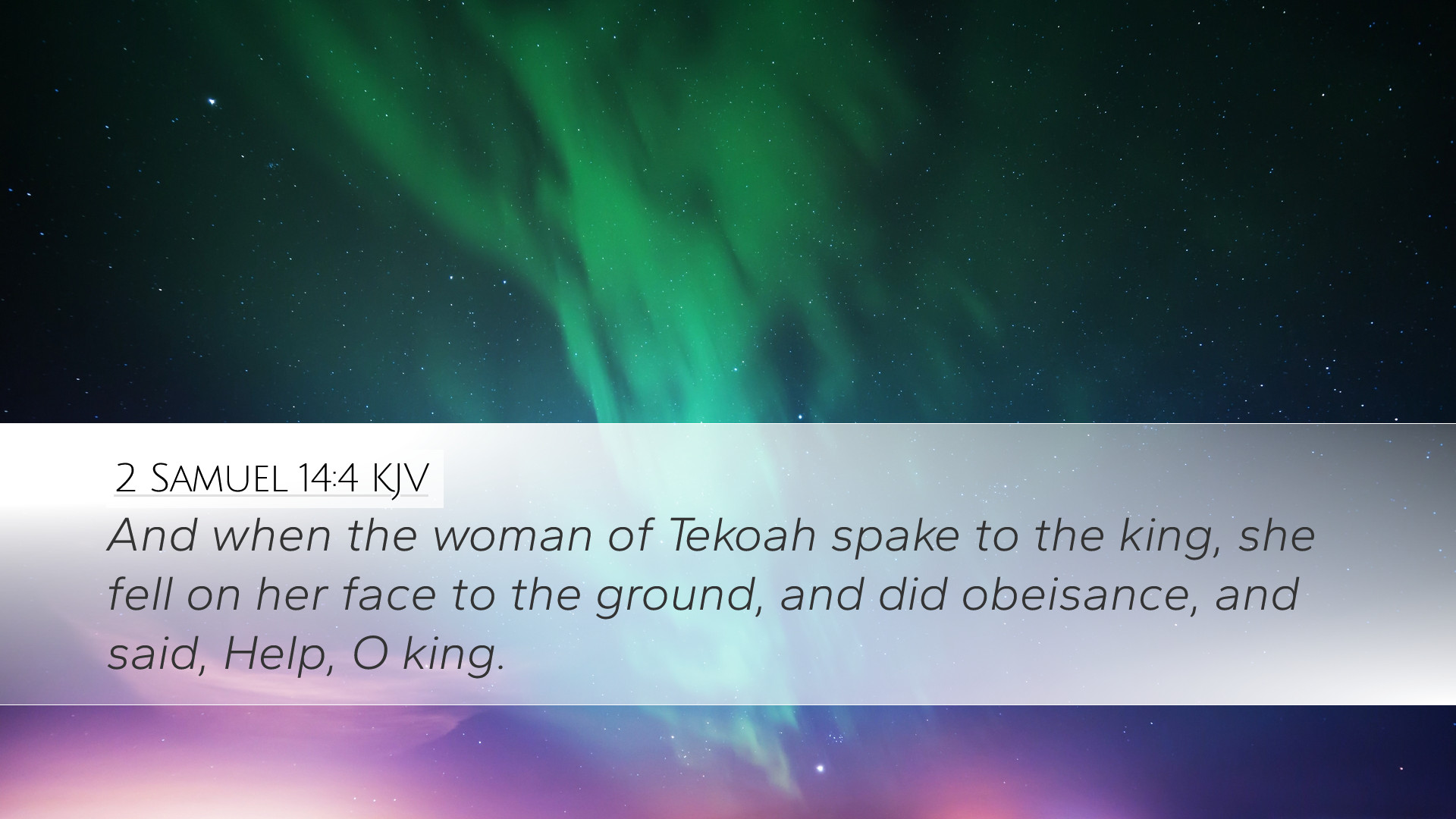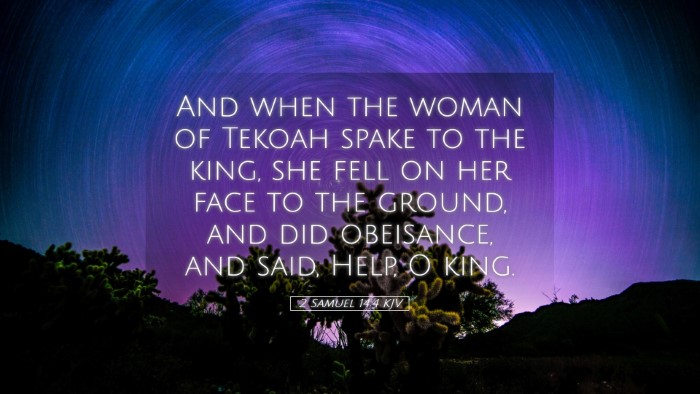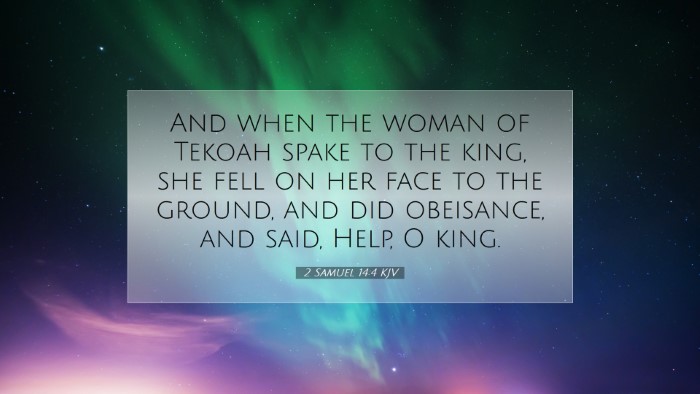Commentary on 2 Samuel 14:4
2 Samuel 14:4 states, “And when the woman of Tekoah spake to the king, she fell on her face to the ground, and did obeisance, and said, Help, O king.” This verse marks the beginning of a significant narrative in the life of King David, illustrating themes of intercession, justice, and the complexities of human relationships.
Overview
This passage introduces us to a woman from Tekoah who approaches King David in a time of personal grief. Her actions and words serve as conduits for profound truths regarding the nature of kingship and the need for empathetic leadership. This encounter is crucial in the unfolding story of David's family drama, particularly concerning his sons and the tensions within his household.
Insights from Public Domain Commentaries
Matthew Henry’s Commentary
Matthew Henry emphasizes the woman’s approach to the king as a reflection of how subjects ought to present their cases before rulers. Addressing David with the utmost respect demonstrates the honor due to the king. Henry notes that this woman’s approach was a strategic one—she falls to the ground and shows obeisance, suggesting that humility is essential when seeking an audience with authority.
Moreover, Henry highlights the significance of the woman’s plea for help, seeing it as a testament to the role of kings to be protectors and avengers. The woman symbolizes the oppressed, appealing to David’s righteous character. The insistence on “Help, O king,” goes beyond mere politeness; it is a cry for a just intervention in a dire situation, effectively capturing the essence of governance as envisioned in biblical principles of justice and mercy.
Albert Barnes’ Notes
Albert Barnes points out the practical elements of this verse, particularly the elaborate procedure of approach to the king and the manner in which she presents herself. He suggests that the woman’s posture signifies her desperate need and the gravity of her situation. Barnes interprets the act of falling on her face as not only a form of respect but a demonstration of her total dependence on the king for salvation from her troubles.
Barnes also brings to light the complexity of David’s kingship at this moment. He contrasts the unity of the household with underlying strife, suggesting that the king’s role is not just to rule but to mediate resolution among his subjects. The woman represents the broader issues experienced by ordinary people in the kingdom, underscoring the need for the king to engage with his subjects' sorrows. This dynamic reinforces the social responsibility of leaders within biblical narratives.
Adam Clarke’s Commentary
Adam Clarke provides a detailed exposition on the cultural context of this encounter. He notes the Tekoahite woman used her wits in a politically charged environment to navigate complex familial issues. Clarke highlights that the act of falling before the king was customary, serving as an acknowledgment of his authority. However, he suggests it also reflects the woman’s deep emotional anguish and the catalyst for her bold request.
Clarke further analyses the implications of her request for help, emphasizing that it was made in the context of a personal tragedy. This lays the groundwork for the narrative that follows, leading to themes of reconciliation and restoration. He asserts that the king's response would set the tone for addressing familial discord within Israel’s monarchy and is indicative of David's overall leadership style.
Theological Reflections
This verse provides profound theological insights for pastors, theologians, and students of scripture. It raises questions about the nature of authority, the responsibility inherent within leadership, and the ways in which God’s people should approach those in power.
- The Nature of Kingship: The biblical portrayal of kingship is not merely about power but about responsibility. It highlights that a true leader is one who is approachable and willing to listen to the needs of their people.
- Intercession: The woman’s plea can be seen as a form of intercession, reflecting the necessity of prayer and supplication in the life of believers. It prompts the reader to consider who is interceding on behalf of others in their community and the church.
- The Role of the Community: This encounter illustrates the importance of communal relationships. It highlights both individual and national identities within Israel, urging believers to reflect on how they support each other in times of need.
Conclusion
In summary, 2 Samuel 14:4 serves as a crucial passage within the narrative arc of King David's reign. The woman's respectful approach to the king underscores themes of honor, the need for justice, and the complexities of human emotions. As scholars and leaders reflect on this verse, it calls for a deeper understanding of the responsibilities of leadership and the importance of being attuned to the needs of the marginalized. The lessons derived from the Tekoahite woman’s posture and plea continue to resonate, urging a commitment to justice and compassion within ecclesiastical and societal frameworks.


